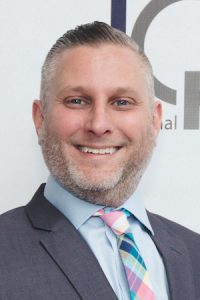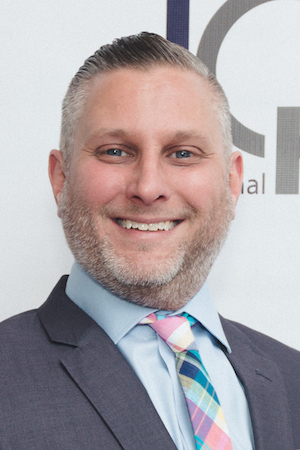Jewish Community: The Other Side of Plenty

The Boomer generation, before them, felt that Judaism was limited to praying, studying, keeping kosher and Shabbat, which failed to inspire many of them. This gave birth to a generation of Jews who became merely cultural without understanding the essence of Judaism, which is rich and nuanced. Lacking inspirational infrastructure to support, what I argue, was that generations’ untapped paradigm shift; a shift that saw massive numbers of Jews confused about what it meant to be Jewish. Was it a religion? Was it a culture? Was it an ethnicity? Was it a nationality? Generally, it was understood that to be affiliated meant one of two things: 1) a synagogue membership; or 2) on the rare occasion that one existed in close enough proximity, involvement with a local JCC.
My boomer dad studied for his Bar Mitzvah and grew up in a kosher home. After his Bar Mitzvah, he never went to shul again. As a teen he didn’t care about keeping kosher and, as an adult, his only connection to Judaism was some internal gut sense that he was a Jew. He was aware though of an inherited ethnic identity, mostly sustained from a passing sense of anti-Semitism that he experienced. My mother had no formal Jewish education, but rather a simple understanding that she was a Jew, also reinforced as an adult by her awareness of the anti-Semitism that surrounded her.
Together, they raised my brother and me in the Conservative Movement. In our relative bubble, shielded from anti-Semitism, we had amazing Jewish experiences, but we understood we had to take what there was- the belief that there was only one way to do Jewish. It was hard to get passed the never-ending, Holocaust education, with “never again” repeated many times. This only served to re-traumatize and reinforce epigenetic anxiety on another generation of Jews. Beyond that there were celebrations of being Jewish with music, social action, spiritual exploration, and communal culture, but we had to fit perfectly into the community’s expected norms. If we ventured outside of the construct, we received a message from the Jewish community, albeit unintentionally, that we had no place.
Through Jewish formal and informal education, which highlighted social justice (tikkun olam), we were given tools that could rarely be used within the institutional Jewish community. This only reinforced the idea that we had all outgrown the existing institutions. We couldn’t use these tools in our community because our community was set in stone. We were often made to believe that things would remain as is- immovable, unchangeable, and not wanting to be transformed. We could wrestle with text but Jewish law was final. The very thought of changing our Judaism was blasphemous and left to esteemed rabbis we would never meet.
The boomer generation of lawyers and doctors brought in more money to the community in the US and gave birth to a generation of teachers, activist, and non-profit professionals. We largely broke the expected continuity norms set for us. Outside of our Jewish world it became an era of pick and choose. A meal was no longer the trifecta of a broiled animal protein, a baked starch, and boiled frozen vegetables at 6pm sharp. It was one of juice cleanses for days, a burrito too large to finish, or a vegan diet.
Then, bam, the online reality hit us and today we find ourselves in the app world created by millennials, a generation removed from the boomers. It is the most personalized world we could ever live in; all of it is within reach while we never have to leave the comfort of our own bed. We have all this power at our fingertips and now, shockingly, we find ourselves lonely. Record numbers of young adults are in need of emotional support, animals to fight their growing internal sense of self-imposed isolation.
We are at a pivotal moment and the Jewish world has an opportunity to create a plethora of ways of being in Jewish community. The need for community has become more desirable and sought after as a remedy to our increasing impersonal lives, as we struggle to combine our online virtual experiences with ones that are face to face. This presents a great opportunity for creating a paradigm shift for changing Jewish identity, organizing and, engagement for Gen Xers and millennials.
It is not through Jewish education online or in the classroom that we will enable individuals to feel they can put their values as Jews into action, but through intentional community experiences. These experiences must be authentically transformational at their core and not the traditional transactional cookie-cutter institutional programming.
JQ’s work enables community members to feel they can help change the world and have Jewish community all at once. The people we serve are given the opportunities to be leaders. They contribute on their terms but work within group experiences. They get to use their desire for social justice to plot course corrections within the Jewish community while being a part of it.
Conceived, developed, and executed by a millennial on our professional team the Persian Pride Fellowship (PPF) is a prime example. Providing LGBTQ+ and ally millennials a community within a community. Allowing them to be change makers in the Jewish community, specifically within their own Persian Jewish community.
PPF, a leadership program, trains and inspires LGBTQ+ and ally Persians to gain the skills with which to impact inclusion and equality. The cohort-based fellowship provides participants with advocacy training, activist resources, and tangible tools customized to help them move equality forward, addressing the unique needs of the Persian Jewish community. Reversing the long-experienced sense of excommunication and hostility from their own religious and spiritual upbringing by empowering them from within the community to repair our Jewish world.
_________
Asher Gellis is the founder and executive director of JQ International, a pioneering LGBTQ and ally Jewish community building and direct service organization that has transformed the landscape of the Jewish world. His innovative and cutting-edge identity building programs have engaged, inspired, and supported activists across the world in their efforts to create and build queer Jewish community and design programs that foster the healthy fusion of LGBTQ and Jewish identities.


